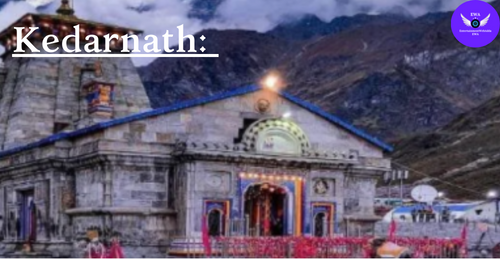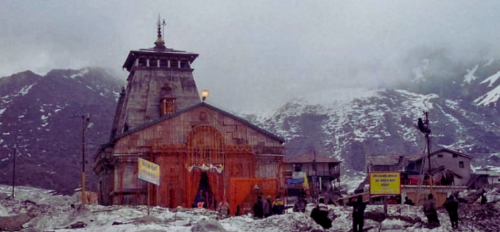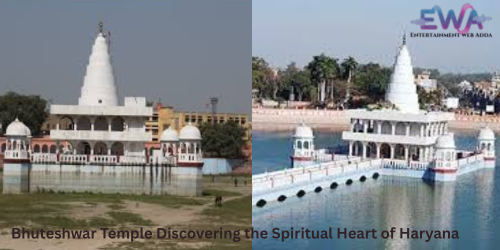Kedarnath: A Fusion of Devotion and Faith via Art
Introduction
Kedarnath
The distinctive lingam of the Temple is among its most fascinating characteristics. Here, devotees think that Lord Shiva himself is worshipped. It is thought to be a naturally occurring rock formation shaped like a lingam, in contrast to other lingams that are manufactured of stone or metal.

Creation Of Kedarnath Temple
According to a narrative, the Pandavas wished to ask Lord Shiva for forgiveness for the misdeeds they had done during the epic Mahabharata conflict. But they were unable to locate him anywhere until Bhima eventually saw him posing as a bull and grazing in a neighboring field. When the Pandavas saw Lord Shiva, they attempted to apprehend him, but he vanished into the earth, leaving just his hump.
According to a different tale, Adi Shankaracharya constructed Kedarnath around the eighth century CE. He revitalized Hinduism during his period and rebuilt numerous old temples throughout India. It is reported that he unearthed the snow-covered Kedarnath temple and brought it back to its former splendor.

The Main pujari is not North Indian, but belongs to Karnataka
The primary pujari, or priest, of the Temple, is really from Karnataka, not North India, which is one of the temple’s most fascinating facts. This statistic demonstrates the diversity and inclusivity of Hinduism as a religion.
Shri Vageesh Lingachar is the Kedarnath Temple’s head priest at the moment. Since 2012.
The Unique Lingam in Kedarnath Temple
The distinctive lingam of the Temple is among its most fascinating characteristics. Here, devotees think that Lord Shiva himself is worshipped. In contrast to other metal or stone lingams, people think that this one is a naturally occurring lingam-shaped rock formation.
With a circumference of 5.7 meters and an astonishing height of around 3.6 meters, the lingam at Kedarnath’s Temple is quite magnificent. It stands for Lord Shiva’s limitless strength and formlessness.
Idols in Kedarnath Temple
In addition to its distinctive lingam, the Temple is well-known for the idols that hang from it. Lord Shiva in his Sadashiva form is represented by the conical stone that serves as Kedarnath’s principal idol. This idol, which is around three feet tall and regarded as one of the twelve Jyotirlingas, is a significant place of pilgrimage.
In addition, the structure housing the temple houses numerous idols, including those of Uma Devi, Ganesha, and Nandi. These idols enhance the location’s spiritual atmosphere and elevate it to even greater divinity.






Good work,
Jai shree Ram,
Pingback: Magnificence Of Kailash Temple, Ellora: A Cultural Treasure